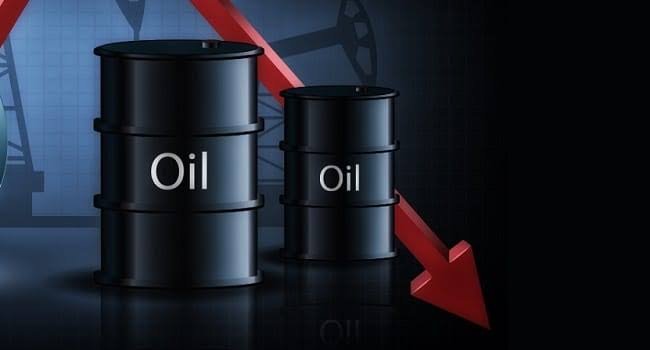The Federal Government of Nigeria’s ambitious $5 billion crude-for-loan deal with Saudi Aramco, intended to be the country’s largest oil-backed financing agreement, has hit significant obstacles due to a sharp decline in global crude oil prices. Initiated during a November 2023 meeting between President Bola Tinubu and Saudi Crown Prince Mohammed bin Salman at the Saudi-African Summit in Riyadh, the deal was designed to bolster Nigeria’s foreign reserves and fund critical infrastructure projects. However, with Brent crude prices dropping approximately 20% from over $82 per barrel in January to around $65, the financial viability of the agreement has come under scrutiny, stalling negotiations.
The proposed loan, which would mark Saudi Arabia’s first major financial engagement in Nigeria, hinges on Nigeria’s ability to supply a steady volume of crude oil to repay the debt. Estimates suggest Nigeria would need to commit at least 100,000 barrels per day to service the loan, a challenging proposition given the country’s current production constraints. Nigeria’s oil output in April stood at just under 1.5 million barrels per day, significantly below the 2 million barrels per day budgeted for 2025 at an assumed price of $75 per barrel, exacerbating concerns about the country’s capacity to meet the deal’s terms.
Compounding the issue, the Nigerian National Petroleum Company (NNPC) is already allocating at least 300,000 barrels per day to service existing oil-backed loans, including one facility nearing full repayment. Nigeria’s history of under-investment in its oil sector, coupled with ongoing obligations to joint-venture partners such as Shell, Oando, and Seplat, has further strained its ability to guarantee the additional crude volumes required. These factors have led to hesitation among the banks expected to finance the deal, which include Gulf-based institutions and at least one African lender.
The global oil market’s dynamics have added further complexity to the negotiations. The Organization of the Petroleum Exporting Countries and its allies (OPEC+), which includes Saudi Arabia, recently decided to gradually unwind voluntary production cuts starting in October, a move expected to increase global oil supply and maintain downward pressure on prices. This decision has heightened concerns among financiers about the long-term stability of Nigeria’s repayment capacity, as lower oil prices would require Nigeria to allocate even more barrels to meet the loan’s repayment schedule.
If finalized, the $5 billion loan would nearly double Nigeria’s existing $7 billion in oil-backed loans accumulated over the past five years. The funds are intended to support Nigeria’s $21.5 billion foreign borrowing plan for the 2025 budget, aimed at addressing infrastructure deficits and stabilizing the economy amid ongoing fiscal challenges. Oando, a leading Nigerian energy company, is expected to manage the offtake of physical crude cargoes under the agreement, leveraging its expertise in the sector to facilitate the deal’s operational aspects.
Negotiations remain ongoing, but neither Saudi Aramco, NNPC, nor Nigeria’s Ministries of Finance and Petroleum Resources have issued public statements on the deal’s status. The lack of transparency has fueled uncertainty, with stakeholders closely monitoring global oil price trends and Nigeria’s production capacity. The stalled talks reflect broader challenges in Nigeria’s oil-dependent economy, including pipeline vandalism, aging infrastructure, and regulatory bottlenecks that have hindered output growth.
The deal’s potential collapse could have significant implications for Nigeria’s fiscal strategy, as the government relies heavily on external borrowing to bridge budget deficits. Analysts note that securing the loan would provide a critical lifeline for infrastructure development and economic stabilization, but failure to reach an agreement could force Nigeria to seek alternative, potentially costlier, financing options. The outcome of the negotiations will likely depend on Nigeria’s ability to address concerns about its crude supply reliability and navigate the volatile global oil market.




